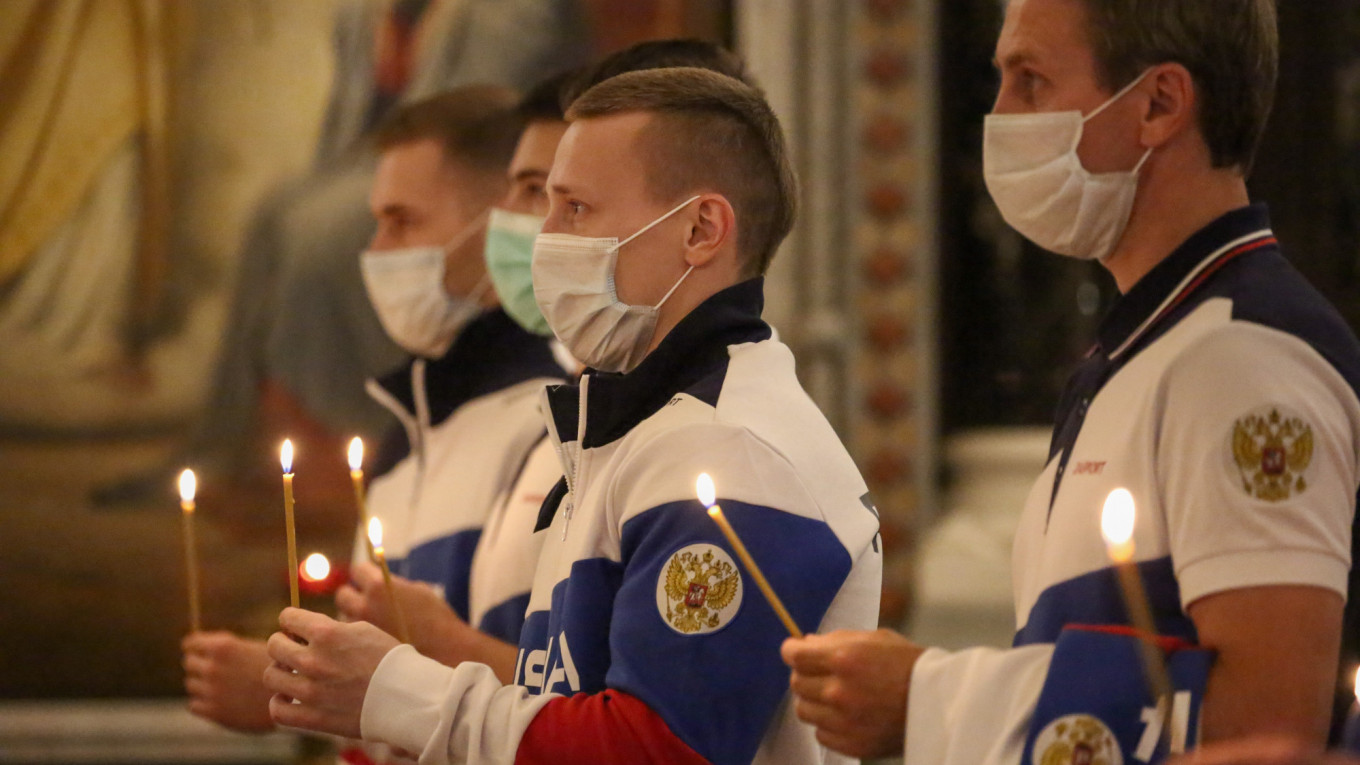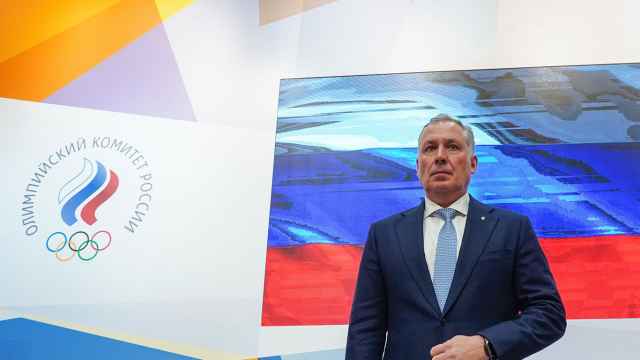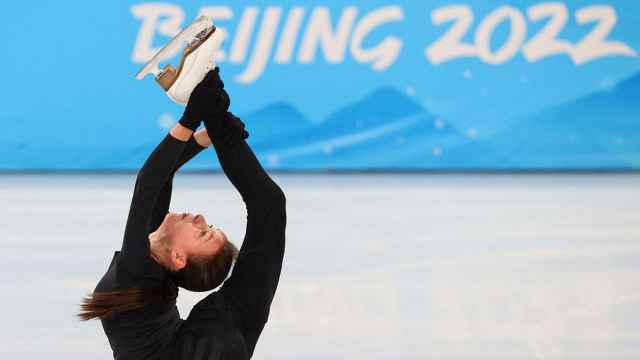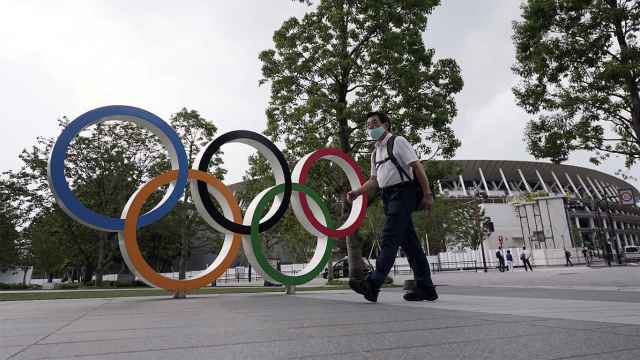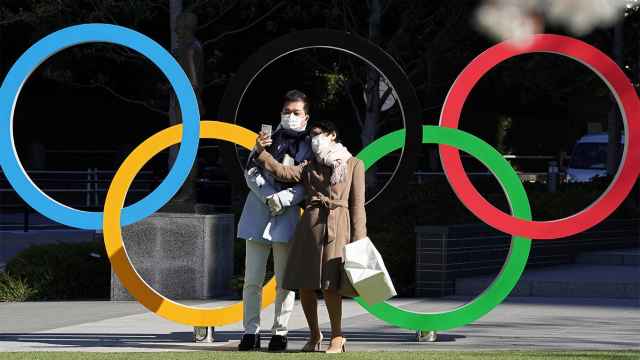Moscow has a reputation for fiercely defending its standing on the world stage, but in a years-long and embarrassing doping scandal in sports, it's playing a different game.
Russia is banned from the Tokyo Olympics this summer, a ruling stemming from revelations in 2015 that officials covered up widespread use of performance-enhancing drugs among its athletes.
Instead of going on the offensive, observers say, Moscow is preoccupied with mitigating the fallout from the reputational blow.
"The conflict is frozen," says Alexei Durnovo, a sports columnist at the independent Ekho Moskvy radio, using terminology that recalls stagnant post-Soviet conflicts.
"We have accepted an honorable surrender, which is to compete without a flag and without an anthem," he said. "Things could have been a lot worse."
Russia was banned for four years from major sporting events by the World Anti-Doping Agency (WADA) in 2019 in the wake of findings that officials manipulated data to cover up positive tests.
The Court of Arbitration for Sport (CAS) reduced Russia's ban from four years to two in December 2020 and clean athletes can compete under a neutral banner.
Russian Olympic Committee President Stanislav Pozdnyakov in an interview with AFP didn't lash out against the ban, only saying he regretted it also applied to President Vladimir Putin attending events.
Kremlin controlled-media—which usually amplify official claims that the ban is a Western plot to sideline Russia—has been unusually quiet about the controversy ahead of the Games.
So too has Putin. In an address at the end of June to Russian athletes headed to Tokyo, he made no mention of the official suspension.
Reform efforts
While team Russia will not be in Tokyo, 335 of its clean athletes will be there, making it one of the largest Olympic delegations.
Should they top the podium, they won't hear the Russian anthem, which is also banned, but instead music by Tchaikovsky.
Analysts said there was good reason the International Olympic Committee (IOC) would not answer calls to toughen sanctions and ban Russians outright.
"It's impossible to imagine that Russia, France, Britain, the US, China or Norway would be thrown out of the Olympic movement, because the Olympic movement is also dependent on them," Durnovo said.
The IOC, he said, instead preferred to "mitigate" the impact of the penalties.
Russia will miss the Winter Olympics in Beijing next year and also the 2022 football World Cup in Qatar.
But he International Volleyball Federation (FIVB) confirmed in June that Russia will host the 2022 World Cup.
The FIVB said it was "legally and practically impossible" to hold the tournament elsewhere.
In the meantime, Russia's messaging to the outside world is clear: we're changing.
One noticeable effort is reforms within the Russian anti-doping agency, which is at the heart of the scandal, albeit with mixed success.
"This suggests a dynamic in the future more in line with international standards," said Lukas Aubin, a professor at Paris-Nanterre University and writer on sports and politics in Russia.
Prestige 'discredited'
All the same, the fallout from the scandal looks set to trouble Russia for years to come.
"The circles of power are only trying to minimize the damage," said Oleg Kildyushov, a researcher at the Higher School of Economics in Moscow.
"The general prestige of Russian sport has been undermined and this entire sphere has been discredited in the long term," he said.
Russia made a decision more than 10 years ago to varnish its reputation through sports, a move that would see it host the World Athletics Championships in 2013, the Winter Olympics in 2014 and the 2018 football World Cup.
At the time, Aubin says, "it was written in black and white that sport should be used to improve Russia's image."
But since the doping scandal, he says, trust between the Kremlin and international sports organizers has been ruptured.
"Today, it's clear that when we think of sport and Russia, we think of doping."
A Message from The Moscow Times:
Dear readers,
We are facing unprecedented challenges. Russia's Prosecutor General's Office has designated The Moscow Times as an "undesirable" organization, criminalizing our work and putting our staff at risk of prosecution. This follows our earlier unjust labeling as a "foreign agent."
These actions are direct attempts to silence independent journalism in Russia. The authorities claim our work "discredits the decisions of the Russian leadership." We see things differently: we strive to provide accurate, unbiased reporting on Russia.
We, the journalists of The Moscow Times, refuse to be silenced. But to continue our work, we need your help.
Your support, no matter how small, makes a world of difference. If you can, please support us monthly starting from just $2. It's quick to set up, and every contribution makes a significant impact.
By supporting The Moscow Times, you're defending open, independent journalism in the face of repression. Thank you for standing with us.
Remind me later.


